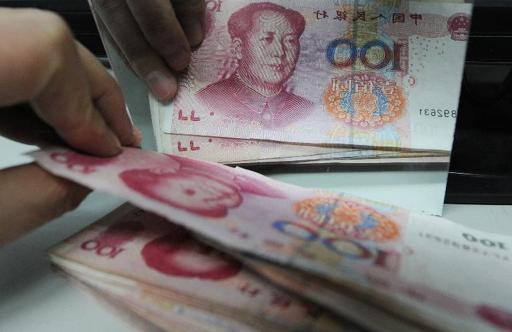Britain and China have signed a deal for the first clearing service for yuan trading outside of Asia, the government here said Wednesday.
The move would make yuan, or renminbi, transactions in London's financial centre more efficient and quicker.
Britain's Treasury said in a statement that the agreement between the Bank of England (BoE) and the People's Bank of China (PBoC) "further strengthens London's position as the Western centre of renminbi trading".
Hong Kong, the former British colony which is now a special administrative region of China, is the largest centre for offshore trading of the yuan.
The BoE and PBoC will sign a Memorandum of Understanding in London on Monday, the Treasury said in a statement.
China's currency, also called the renminbi, is not freely convertible. But the Chinese government is gradually moving towards full convertibility so that the unit might one day rival the US dollar.
"Connecting Britain to the fastest growing parts of the world is central to our economic plan," finance minister George Osborne said in Wednesday's statement.
"It's why I've put such government effort over the last three years into making sure we're the leading western centre for trading in the Chinese currency, the renminbi. That effort has paid off -- and today's agreement, the first outside Asia on clearing and settlement arrangements, is another major step forward.
"It is great news and I look forward to the appointment of a clearing bank soon."
In April last year, the City of London financial district launched an initiative to make the British capital a centre for yuan business.
The central banks of the two countries also agreed last June to set up a sterling-yuan currency swap line to promote bilateral trade.
On a recent trip to Hong Kong, Osborne said more British retailers, including John Lewis stores, would start accepting payment in yuan to encourage Chinese tourists.
One of China's largest fund management firms, E Fund Management, and London-based ETF Securities also planned to launch a financial product to allow foreigners to invest in Chinese firms directly in yuan, Osborne said.




















































